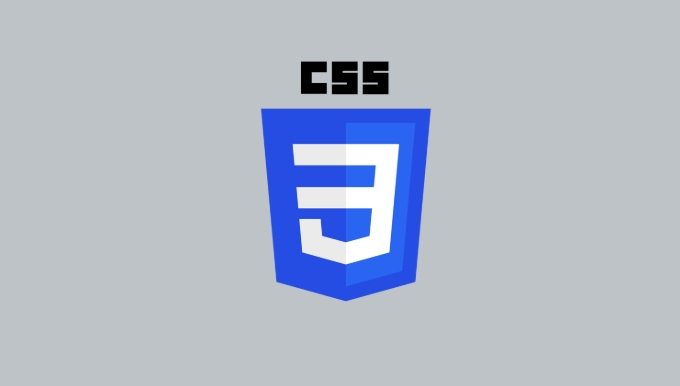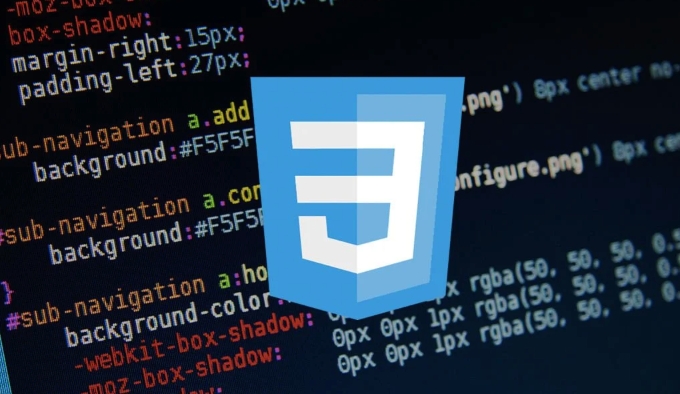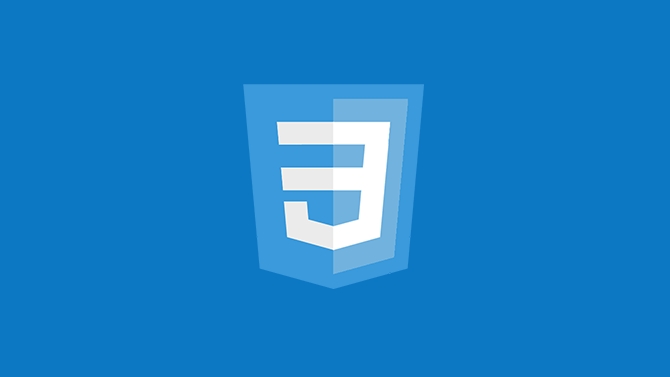To find a solid CSS video tutorial on YouTube, prioritize up-to-date content, clear explanations, and hands-on coding. 1. Choose beginner-friendly series from channels like Traversy Media or The Net Ninja that walk through real projects and cover Flexbox, Grid, and responsive design. 2. Ensure the tutorials are from the last 2–3 years and mention modern features like container queries and CSS variables. 3. Use short, focused videos from Kevin Powell or Web Dev Simplified for specific topics like centering elements. 4. Actively engage by using timestamps, subtitles, and coding alongside the videos to reinforce learning.

If you're looking for a solid CSS video tutorial on YouTube, the key is to find one that's up-to-date, explains concepts clearly, and walks through real-world examples. Many beginners get stuck choosing between dozens of options, so let’s cut straight to what really matters.

Beginner-Friendly Series with Hands-On Examples
One of the most effective ways to learn CSS is by watching tutorials that build projects from scratch. Channels like Traversy Media and The Net Ninja are known for this style. Their playlists guide you through basic syntax all the way to layout techniques like Flexbox and Grid — while actually writing code in every video.

What makes these series stand out:
- Clear explanations without skipping steps
- Code-along format so you can follow in real time
- Covers responsive design early on
A full-length beginner playlist (10–20 videos) from either channel will give you a strong foundation without feeling overwhelming.

Up-to-Date Content Matters More Than You Think
CSS evolves — new properties like gap in Flexbox or container queries have changed how we approach layouts. A lot of older tutorials still teach outdated practices, which can confuse learners when things don’t work as expected.
When browsing for a tutorial:
- Check the video date — ideally within the last 2–3 years
- Look for mentions of modern tools like CSS Grid, custom properties (variables), and accessibility basics
- Avoid videos that focus too much on old-school hacks (like float-based layouts)
You don't need someone to explain every single CSS version change, but knowing that your tutorial covers current standards helps avoid bad habits.
Short, Focused Tutorials for Specific Topics
Sometimes you don’t need a full course — just a quick breakdown of something like centering elements or creating a sticky navbar. For that, channels like Kevin Powell, Web Dev Simplified, and Humphrey Shi offer concise, high-quality videos that tackle one topic at a time.
These are great because:
- They’re usually under 10 minutes
- Often include before/after visuals showing the effect of each line
- Perfect for reinforcing concepts or solving specific problems
For example, Kevin Powell has a short video explaining the difference between Flexbox and Grid — it’s not flashy, but it clears up a common confusion point fast.
Bonus Tip: Use YouTube Features to Learn Smarter
Don’t just watch passively. Take advantage of YouTube's features to make your learning more efficient:
- Use timestamps in the description to jump to specific topics
- Turn on subtitles if you're not a native English speaker — they help with both comprehension and retention
- Open a code editor alongside the video and type out everything yourself
Also, consider subscribing to channels that post consistently. That way, you can follow along as they release new content and build your knowledge step by step.
That’s basically it. There’s no one “best” CSS tutorial, but the right kind of tutorial — whether long-form or topic-based — can make a big difference. It doesn’t have to be flashy or overly produced; clarity and practicality go a long way.
The above is the detailed content of What is a good video CSS tutorial on YouTube?. For more information, please follow other related articles on the PHP Chinese website!

Hot AI Tools

Undress AI Tool
Undress images for free

Undresser.AI Undress
AI-powered app for creating realistic nude photos

AI Clothes Remover
Online AI tool for removing clothes from photos.

Clothoff.io
AI clothes remover

Video Face Swap
Swap faces in any video effortlessly with our completely free AI face swap tool!

Hot Article

Hot Tools

Notepad++7.3.1
Easy-to-use and free code editor

SublimeText3 Chinese version
Chinese version, very easy to use

Zend Studio 13.0.1
Powerful PHP integrated development environment

Dreamweaver CS6
Visual web development tools

SublimeText3 Mac version
God-level code editing software (SublimeText3)
 CSS tutorial for creating loading spinners and animations
Jul 07, 2025 am 12:07 AM
CSS tutorial for creating loading spinners and animations
Jul 07, 2025 am 12:07 AM
There are three ways to create a CSS loading rotator: 1. Use the basic rotator of borders to achieve simple animation through HTML and CSS; 2. Use a custom rotator of multiple points to achieve the jump effect through different delay times; 3. Add a rotator in the button and switch classes through JavaScript to display the loading status. Each approach emphasizes the importance of design details such as color, size, accessibility and performance optimization to enhance the user experience.
 Addressing CSS Browser Compatibility issues and prefixes
Jul 07, 2025 am 01:44 AM
Addressing CSS Browser Compatibility issues and prefixes
Jul 07, 2025 am 01:44 AM
To deal with CSS browser compatibility and prefix issues, you need to understand the differences in browser support and use vendor prefixes reasonably. 1. Understand common problems such as Flexbox and Grid support, position:sticky invalid, and animation performance is different; 2. Check CanIuse confirmation feature support status; 3. Correctly use -webkit-, -moz-, -ms-, -o- and other manufacturer prefixes; 4. It is recommended to use Autoprefixer to automatically add prefixes; 5. Install PostCSS and configure browserslist to specify the target browser; 6. Automatically handle compatibility during construction; 7. Modernizr detection features can be used for old projects; 8. No need to pursue consistency of all browsers,
 What is the difference between display: inline, display: block, and display: inline-block?
Jul 11, 2025 am 03:25 AM
What is the difference between display: inline, display: block, and display: inline-block?
Jul 11, 2025 am 03:25 AM
Themaindifferencesbetweendisplay:inline,block,andinline-blockinHTML/CSSarelayoutbehavior,spaceusage,andstylingcontrol.1.Inlineelementsflowwithtext,don’tstartonnewlines,ignorewidth/height,andonlyapplyhorizontalpadding/margins—idealforinlinetextstyling
 Styling visited links differently with CSS
Jul 11, 2025 am 03:26 AM
Styling visited links differently with CSS
Jul 11, 2025 am 03:26 AM
Setting the style of links you have visited can improve the user experience, especially in content-intensive websites to help users navigate better. 1. Use CSS's: visited pseudo-class to define the style of the visited link, such as color changes; 2. Note that the browser only allows modification of some attributes due to privacy restrictions; 3. The color selection should be coordinated with the overall style to avoid abruptness; 4. The mobile terminal may not display this effect, and it is recommended to combine it with other visual prompts such as icon auxiliary logos.
 Creating custom shapes with css clip-path
Jul 09, 2025 am 01:29 AM
Creating custom shapes with css clip-path
Jul 09, 2025 am 01:29 AM
Use the clip-path attribute of CSS to crop elements into custom shapes, such as triangles, circular notches, polygons, etc., without relying on pictures or SVGs. Its advantages include: 1. Supports a variety of basic shapes such as circle, ellipse, polygon, etc.; 2. Responsive adjustment and adaptable to mobile terminals; 3. Easy to animation, and can be combined with hover or JavaScript to achieve dynamic effects; 4. It does not affect the layout flow, and only crops the display area. Common usages are such as circular clip-path:circle (50pxatcenter) and triangle clip-path:polygon (50%0%, 100 0%, 0 0%). Notice
 How to create responsive images using CSS?
Jul 15, 2025 am 01:10 AM
How to create responsive images using CSS?
Jul 15, 2025 am 01:10 AM
To create responsive images using CSS, it can be mainly achieved through the following methods: 1. Use max-width:100% and height:auto to allow the image to adapt to the container width while maintaining the proportion; 2. Use HTML's srcset and sizes attributes to intelligently load the image sources adapted to different screens; 3. Use object-fit and object-position to control image cropping and focus display. Together, these methods ensure that the images are presented clearly and beautifully on different devices.
 Demystifying CSS Units: px, em, rem, vw, vh comparisons
Jul 08, 2025 am 02:16 AM
Demystifying CSS Units: px, em, rem, vw, vh comparisons
Jul 08, 2025 am 02:16 AM
The choice of CSS units depends on design requirements and responsive requirements. 1.px is used for fixed size, suitable for precise control but lack of elasticity; 2.em is a relative unit, which is easily caused by the influence of the parent element, while rem is more stable based on the root element and is suitable for global scaling; 3.vw/vh is based on the viewport size, suitable for responsive design, but attention should be paid to the performance under extreme screens; 4. When choosing, it should be determined based on whether responsive adjustments, element hierarchy relationships and viewport dependence. Reasonable use can improve layout flexibility and maintenance.
 What are common CSS browser inconsistencies?
Jul 26, 2025 am 07:04 AM
What are common CSS browser inconsistencies?
Jul 26, 2025 am 07:04 AM
Different browsers have differences in CSS parsing, resulting in inconsistent display effects, mainly including the default style difference, box model calculation method, Flexbox and Grid layout support level, and inconsistent behavior of certain CSS attributes. 1. The default style processing is inconsistent. The solution is to use CSSReset or Normalize.css to unify the initial style; 2. The box model calculation method of the old version of IE is different. It is recommended to use box-sizing:border-box in a unified manner; 3. Flexbox and Grid perform differently in edge cases or in old versions. More tests and use Autoprefixer; 4. Some CSS attribute behaviors are inconsistent. CanIuse must be consulted and downgraded.






